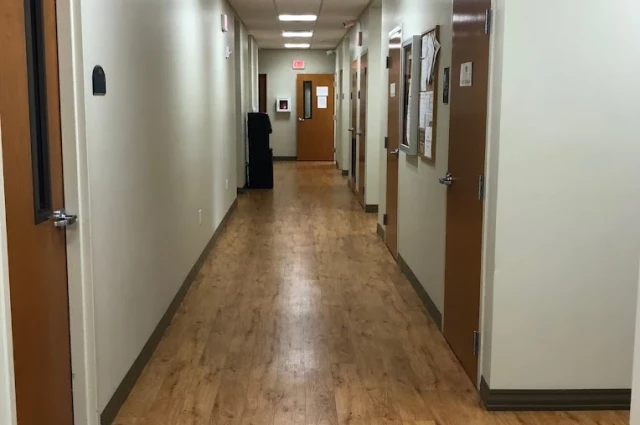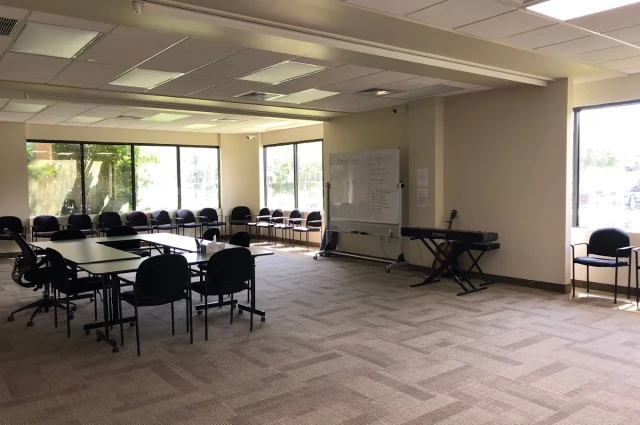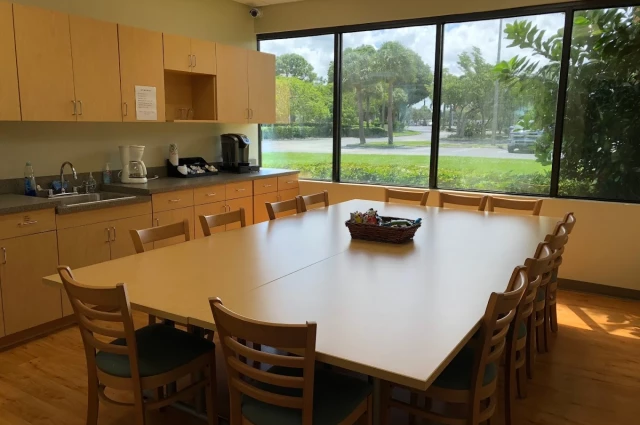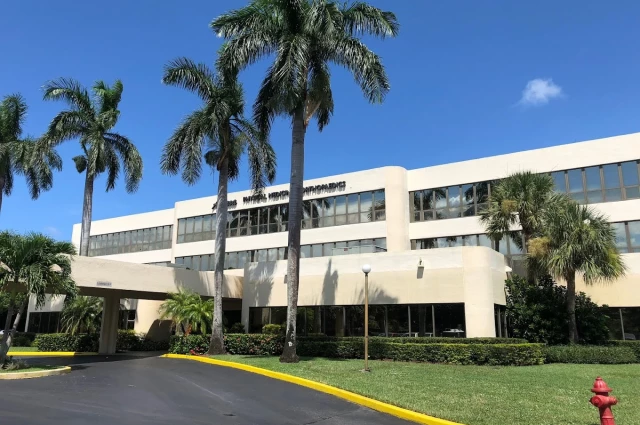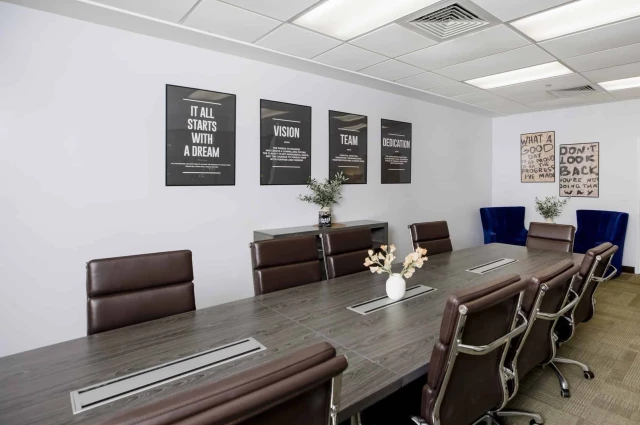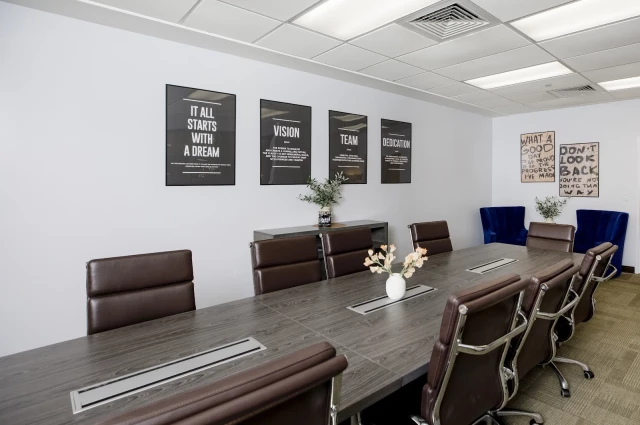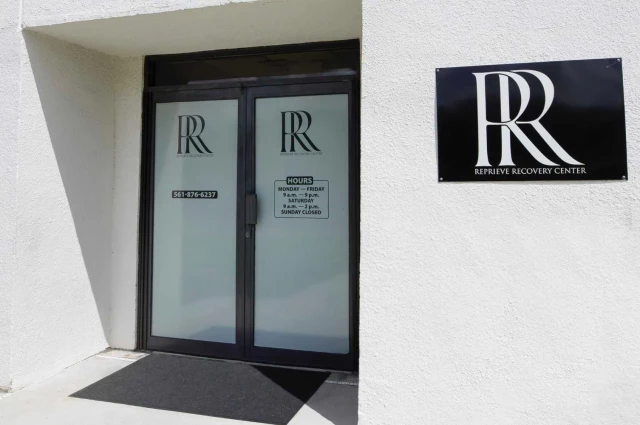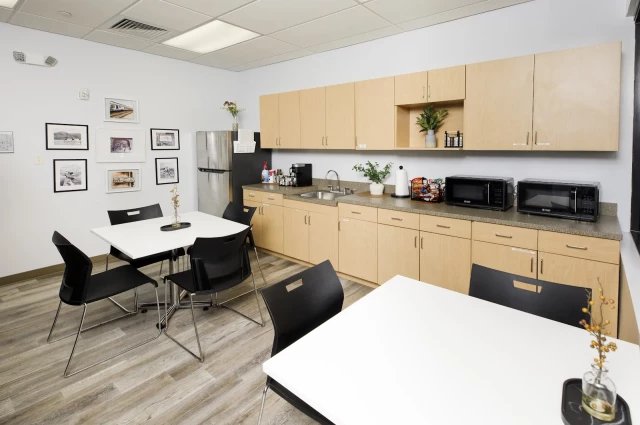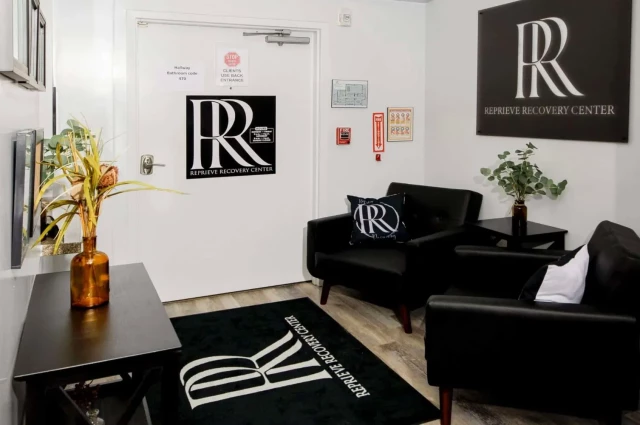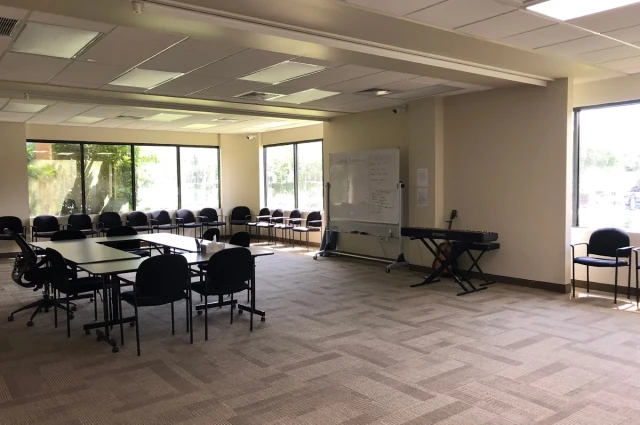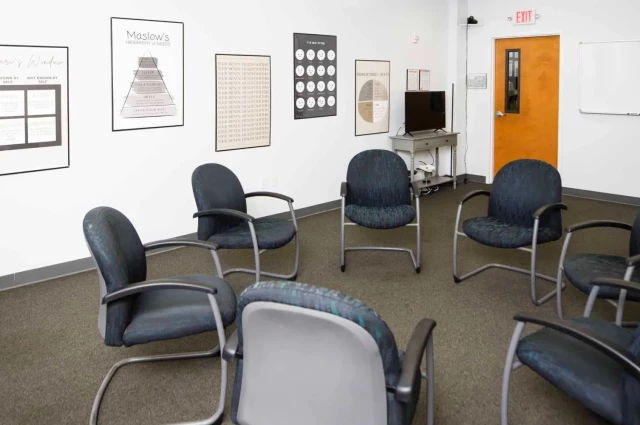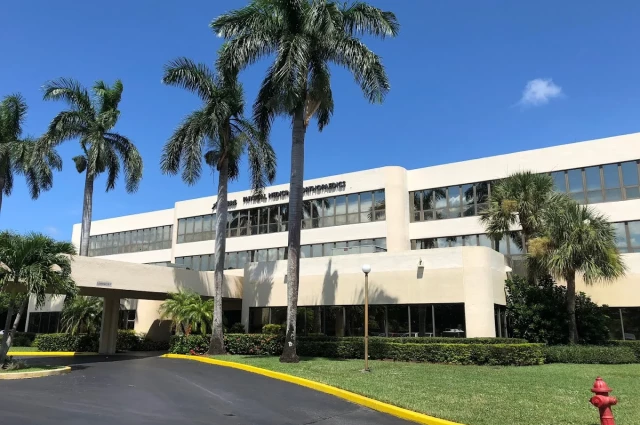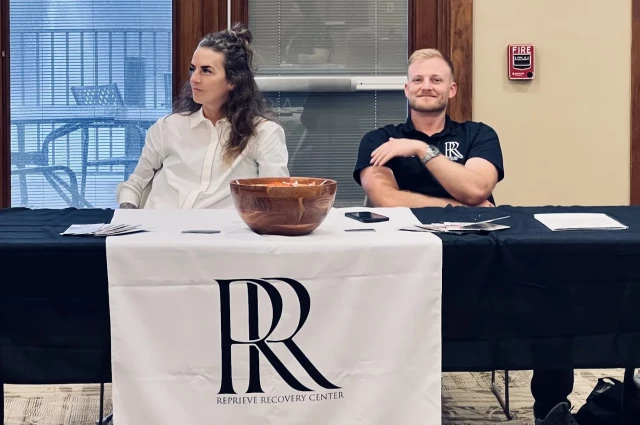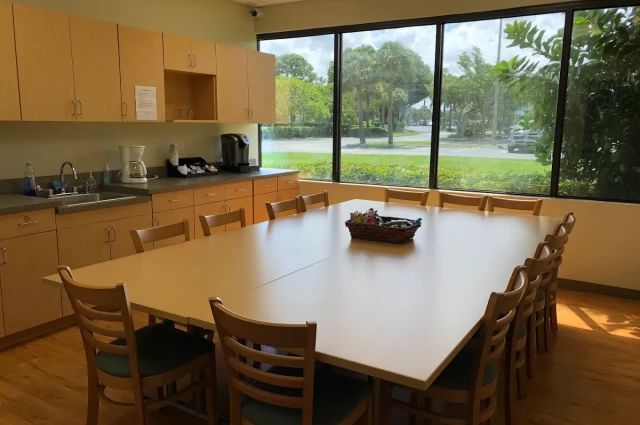Reprieve Information
Treatment
Who We Treat
- Young Adults (18–25)
- Adults
- Seniors/Older Adults
- Older Adults
- Male and Female
- LGBTQ+
- Veterans
Treatment Focus
- Day Treatment
- Alcohol
- Drug Addiction
- Intensive Outpatient Program
- Medication-Assisted Treatment
Approaches
- 12-Step-Based
- Individual Treatment
- Personalized Treatment
- Evidence-Based
- Spiritual Emphasis
- Twelve Step
- Family Therapy
- Holistic
- Cognitive Behavioral Therapy (CBT)
- Rational Emotive Behavior Therapy (REBT)
- Motivational Interviewing
- 1-on-1 Counseling
- Eye Movement Therapy (EMDR)
- Life Skills Training
- Relapse Prevention Counseling
Conditions We Treat
- Depression
- Anxiety
- Post Traumatic Stress Disorder (PTSD)
- Trauma
- Suicidal Thoughts
- Suicidality
- Co-Occurring Disorders
Substances We Treat
- Alcohol
- Benzodiazepines
- Heroin
- Cocaine
- Methamphetamine
- MDMA/Ecstasy
- Ecstasy
- Psychedelics
Languages
- English
Aftercare
- Intensive Outpatient Program
- Support Meetings
- Alumni Events & Get-Togethers
- Alumni Reunions
Level of Care
- Outpatient
- Intensive Outpatient Program (IOP)
- Day Treatment
- Outpatient Detox
- Detox
- Residential Rehab
- Co-Occurring Mental Health
Experience
Personal Amenities
- Air-Conditioned Rooms
On-Site Activities
- AA/NA Meetings
- Adventure Outings
Special Considerations
- Wheelchair Accessible
Smoking and Vaping Policy
- Smoking Allowed in Designated Areas
- Vaping Allowed in Designated Areas
Accreditations
-
State department of health
Government agencies issue State Licenses, granting permission to rehabilitation organizations to conduct their business operations lawfully within specific geographic regions. Generally, the particular rehabilitation programs offered by a facility and its physical location dictate the necessary licenses needed for legal operation.

-
The Joint Commission
The Joint Commission's addiction and behavioral health accreditation signifies a facility's commitment to high-quality care. It involves rigorous evaluations and assessments of clinical practices, ensuring effective, evidence-based treatment. Accreditation showcases a dedication to continuous improvement and patient safety, instilling trust among patients, families, and healthcare professionals. It's a mark of excellence in addiction and behavioral health care.

Reprieve Accepts The Following Insurance Plans
Find the best treatment options. Call our free and confidential helpline today!
